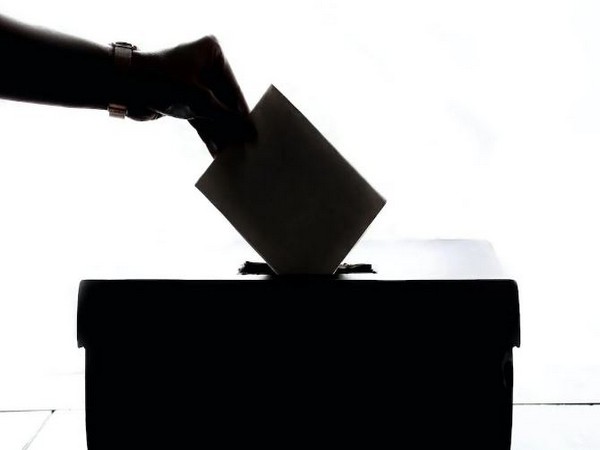Right-wing populists even stronger after Swiss parliamentary election
Oct 23, 2023
Geneva [Switzerland], October 23: Right-wing populists from the Swiss People's Party (SVP) are projected to make gains and come out even stronger than pollsters had predicted.
According to projections by the survey institute gfs.bern after Sunday's parliamentary election, the right-wing conservative SVP is likely to get 29 percent of the vote.
That would be an increase of 3.4 percentage points, more than predicted in surveys ahead of the election.
The SVP has been the party with the most votes in Switzerland for more than 20 years.
Meanwhile a debacle was looming for the green camp. The Greens are likely to get 9.1 percent percent, minus 4.1 percentage points, with the Green Liberals projected at 7.1 percent, down 0.7 points.
"The sad thing is: the climate has lost," Aline Trede from the Green Party leadership said on SRF television.
For the SVP, the issue of immigration was the key to success, as Vice President Marcel Dettling said: "The people have spoken, a course correction is urgently needed."
The SVP is demanding border controls and the rejection of asylum seekers.
However, the elections will not change the government. The parties with the highest number of voters in the long term have been governing together for decades, including the SVP.
The SVP is expected to win six seats in the National Council, the larger 200-seat parliamentary chamber. The Greens are likely to lose five seats and the Green Liberals three.
Between the SVP and the Greens, the Social Democrats are likely to gain slightly for the first time since 2003 to a good 17 percent.
The liberal FDP and the Christian "Center" party are likely to end up at around 15 percent. Votes were also case for the second chamber, the Council of States with 46 seats.
Political scientist Michael Hermann had foreseen the SVP's new strength which he attributed to international tensions, amoing other factors.
"In times of crisis, the need for stability always increases and there is less need for experiments," he told dpa.
Rising prices play a less important role in Switzerland than in neighboring countries. The inflation rate has never been higher than 3.4 percent in the past 18 months.
This is due in part to protectionist measures that generally keep prices high, but are adjusted in times of crisis and can thus absorb price hikes.
In the run-up to elections, the SVP follows a strategy which relies on fear. It agitates against foreigners, warns rapprochement with the EU and some representatives see invoke a war over the preservation of Swiss culture.
The party is in favour of cutting social spending and development aid while maintaining a strong military.
Since 1999, the party has had the most seats in the National Council.
"The SVP already anticipated a lot of what right-wing populist parties like (Germany's) AfD or the Scandinavian representatives are doing today: the style of posing as the voice of the people, the 'little people, addressing issues such as migration and asylum, and putting up provocative campaign posters," said DamirSkenderovic, history professor at the University of Freiburg/Fribourg.
Paradoxically, the SVP is both a government and a protest party. It represents two of the seven members of the government, the Federal Council. In addition to the SVP, the Social Democratic Party (SP) and the liberal FDP are represented with two seats each and the Christian Centre Party with one seat.
In the Federal Council, the SVP is right-wing conservative and supports compromises, while on the campaign trail it is right-wing populist, for example with initiatives such as those currently against immigration and for stricter Swiss neutrality, which would prohibit sanctions against Russia in the Ukraine conflict.
In this way, the Swiss populists repeatedly stab the government which they a part of in the back. "The double game is very established and accepted," Hermann explained.
A good 5.5 million Swiss people were called on to vote on Sunday.
According to projections, voter turnout was only around 46 percent.
This is due, among other things, to the fact that the Swiss decide on numerous proposals via referendum four times a year. That's why they rarely use parliamentary elections as an outlet to give rulers a lesson.
Source: Qatar Tribune








